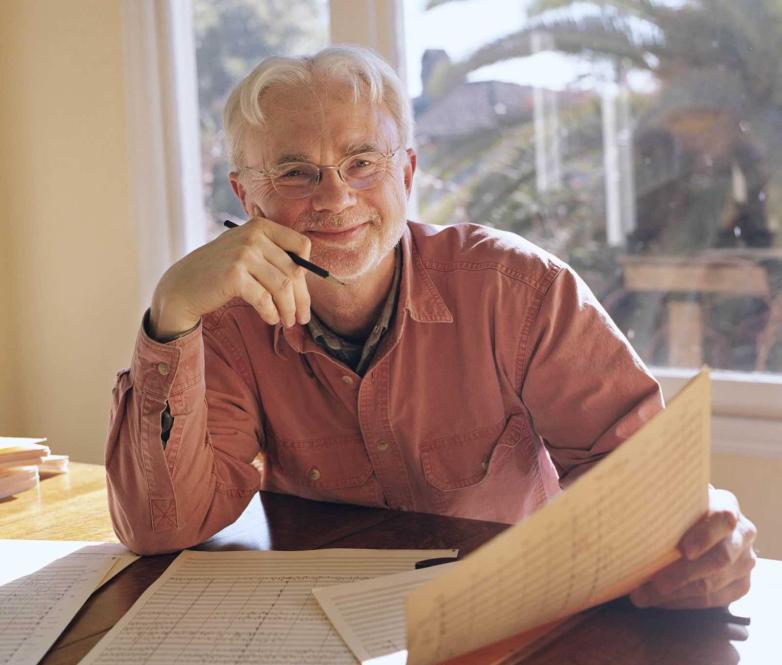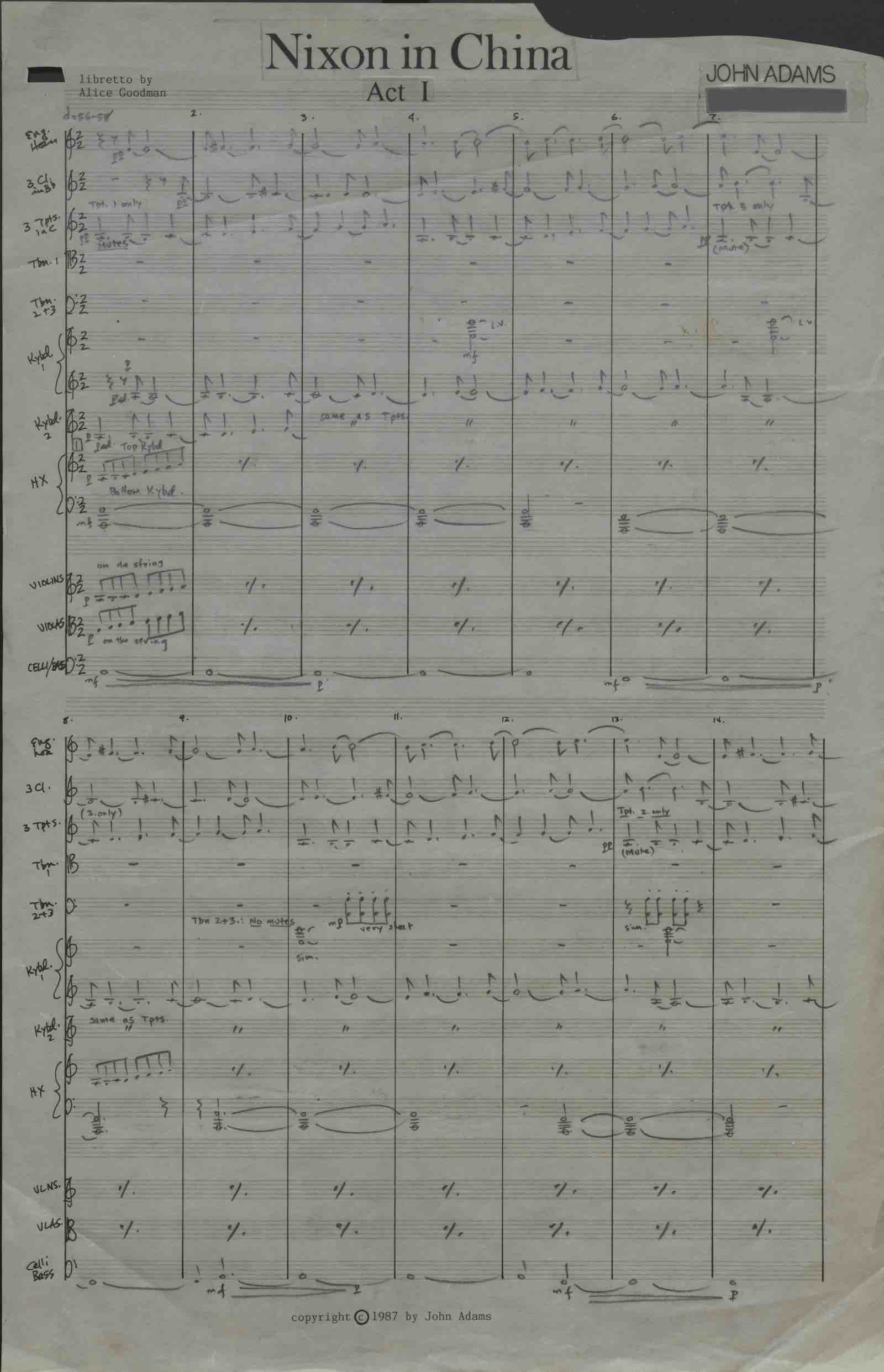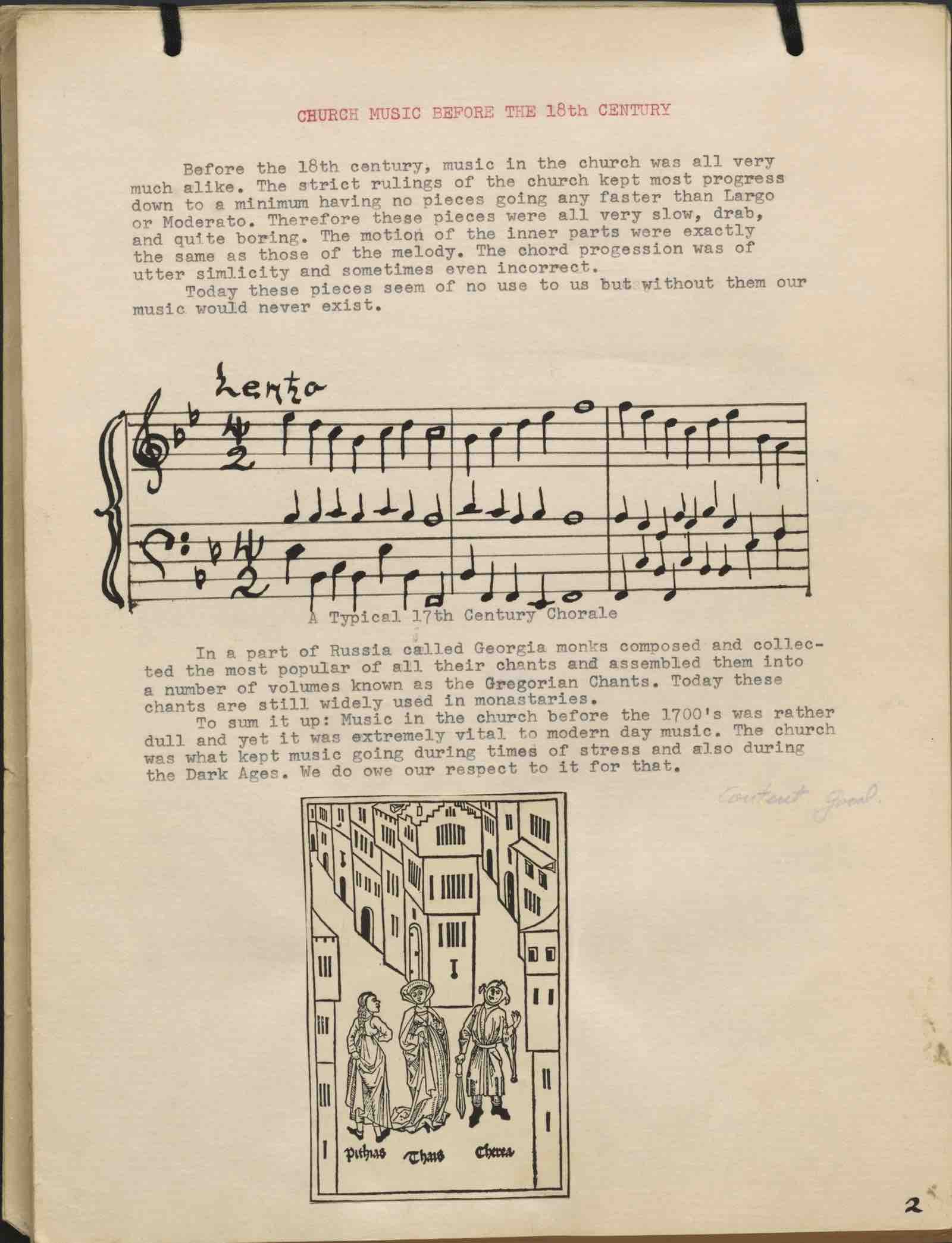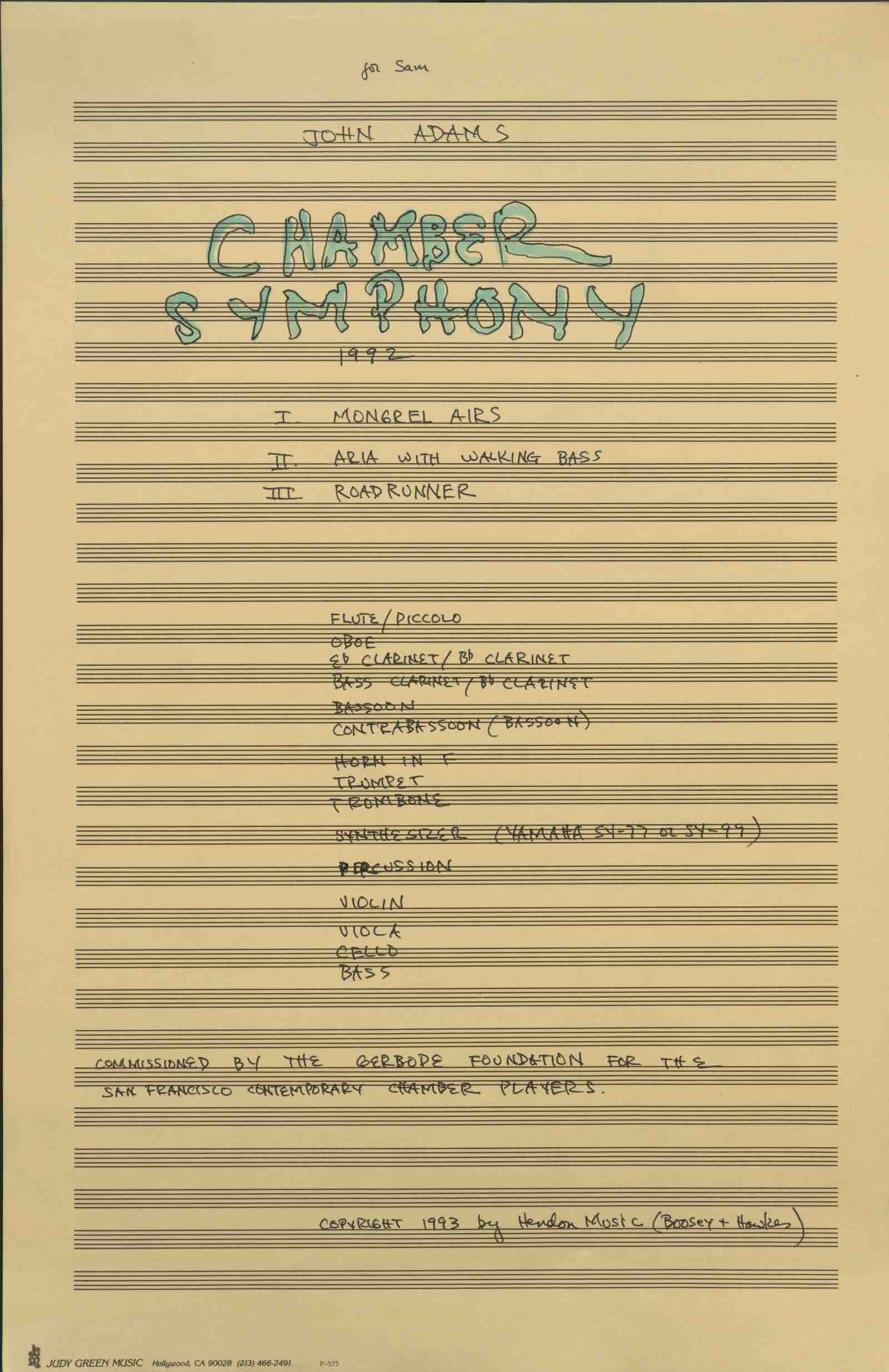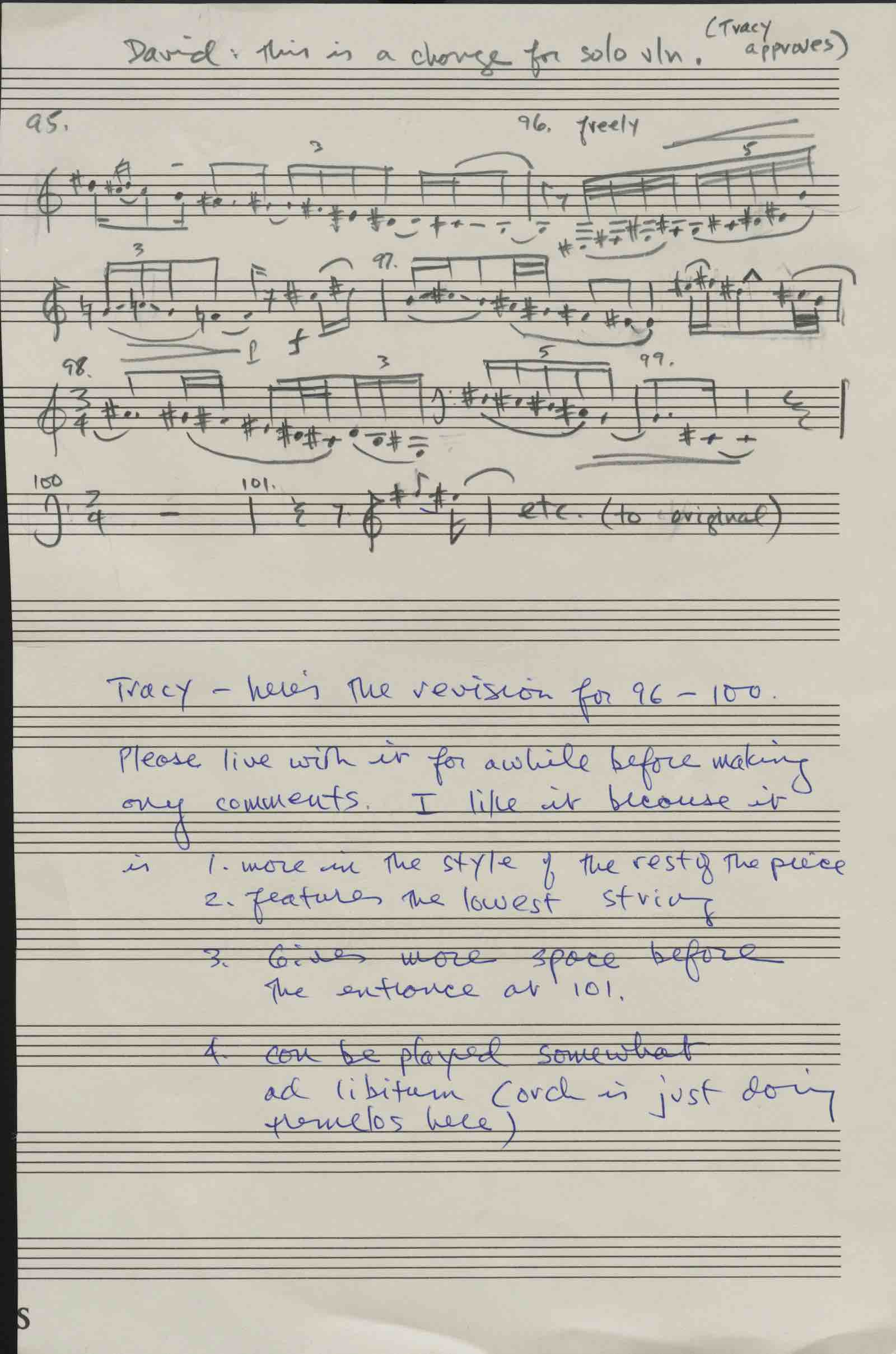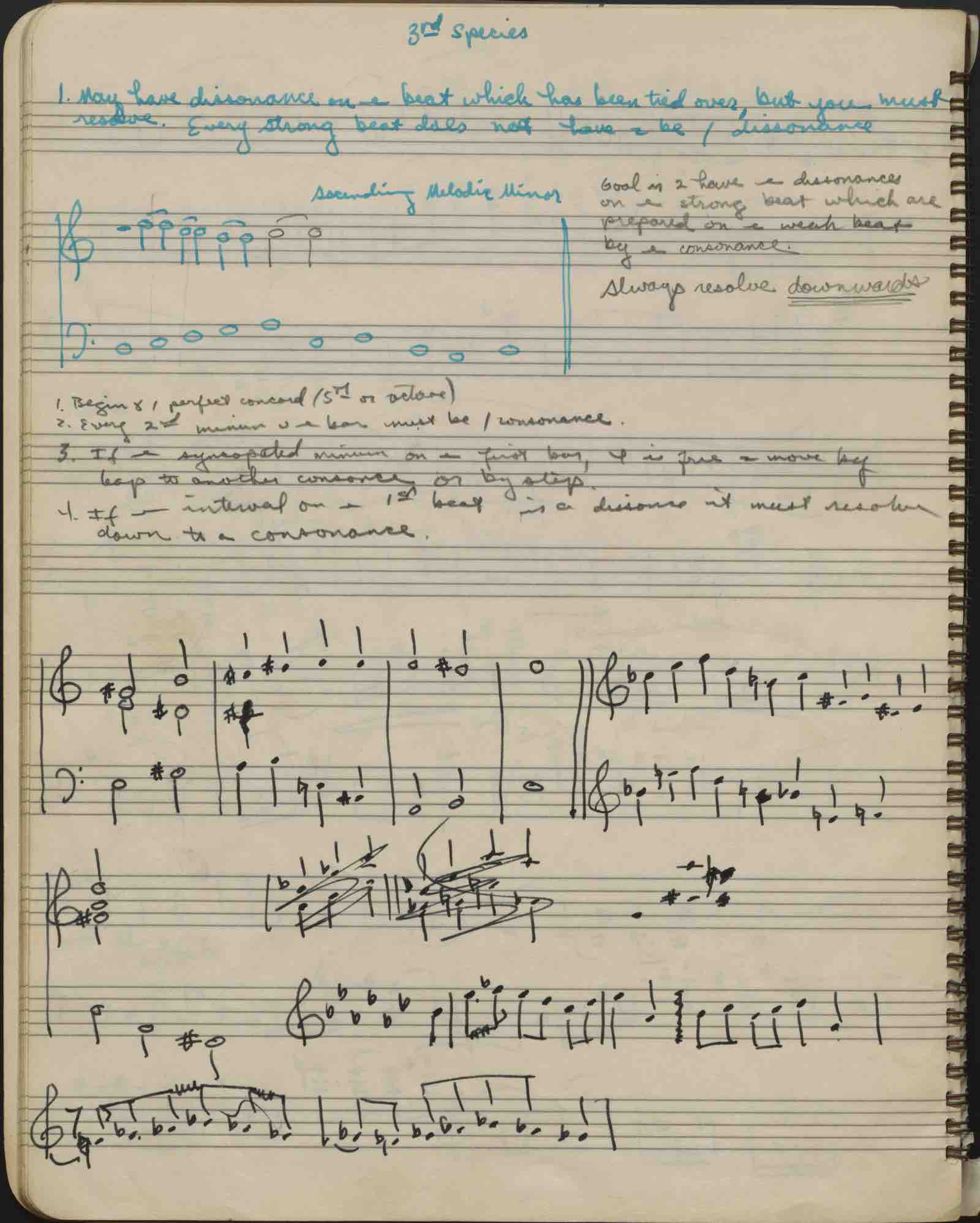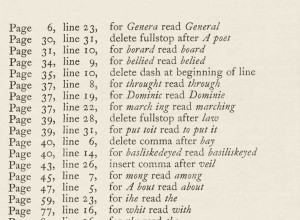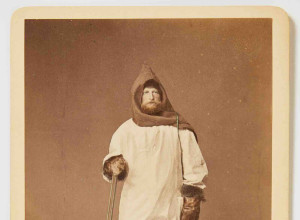The evolution of many works can be traced through voluminous music sketches written in pencil, such as the seven notebooks for Adams’ orchestral work Harmonielehre. Boxes of materials for Adams’ operas demonstrate the many phases involved in the production of his large-scale stage works, from background research and early notes on plot and characters, to music drafts and sketches, to complete music manuscripts and annotated full scores used at the point of performance. Letters and notes exchanged with frequent collaborators Peter Sellars and Alice Goodman show the inner workings of Adams’ complex theatrical compositions.
“To have my archives under the care and preservation of the Library of Congress is a great privilege,” said Adams, winner of numerous Grammy awards, the Grawemeyer Award for Music Composition and the Pulitzer Prize. “Over the years I have visited the Music Division, met their brilliant staff and had the special chance to hold in my hands manuscripts by among others, Brahms, Schoenberg, Bernstein and Charlie Parker. As an American composer – especially with a name like mine – it seems only right that my own work should be with this great institution.”
The papers of Adams will join those of other American giants in the performing arts, including Leonard Bernstein, Aaron Copland, George and Ira Gershwin, Martha Graham, Charles Mingus, and Neil Simon, maintained in the Library’s Music Division.

